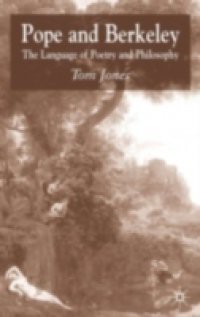How can the sound of poetry echo its sense? Pope says that it can seem to, yet the linguistic and philosophical context in which he has up to now been studied, predominantly the context of John Locke's Essay Concerning Human Understanding, provides no explanation of this poetic phenomenon, and indeed has very little to say about poetry altogether. By reading Pope's work next to the work of his life-long friend George Berkeley, this book aims to provide an alternative linguistic and philosophical context for Pope's work, a context that recognises the value of performative, rhetorical and poetic uses of language. Beginning with an account of some of the writings on language with which Pope and Berkeley were familiar, it moves on to discuss the visual arts and economics in the light of these writings on language, reading philosophical complexities into Pope's poetic presentation of the visual and financial worlds. It moves on to discuss Berkeley's idea of the phenomenal world as the language of God in relation to Pope's Essay on Man, and concludes with a reading of Pope's Essay next to David Hume's Treatise of Human Nature. This book completely re-evaluates the place of Pope amongst the philosophers sometimes called the British empiricists, and asks searching questions about the relationship between poetry and philosophy in the eighteenth century and beyond.

